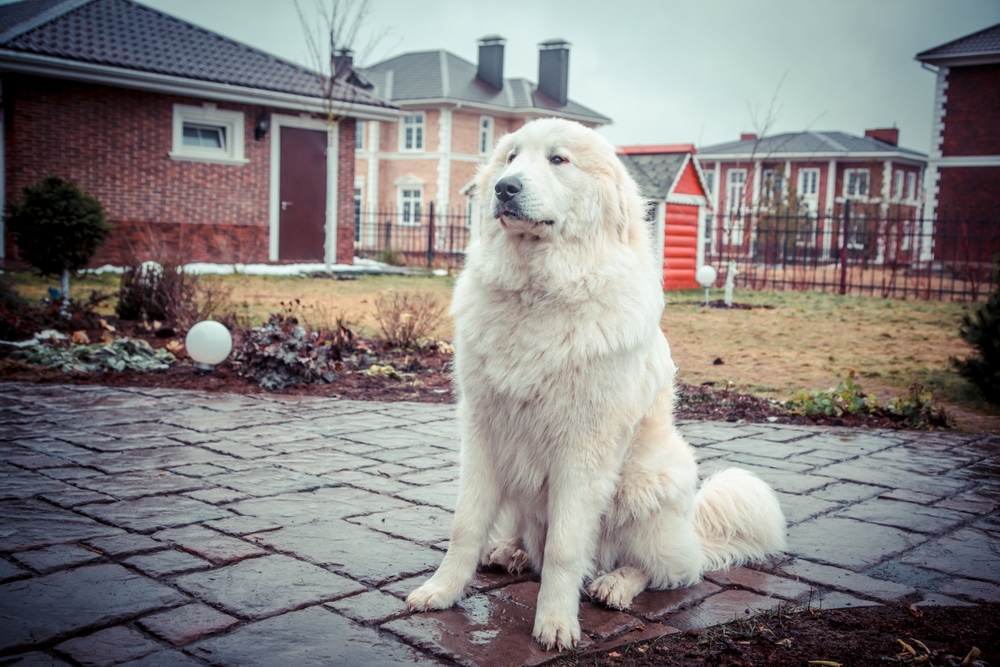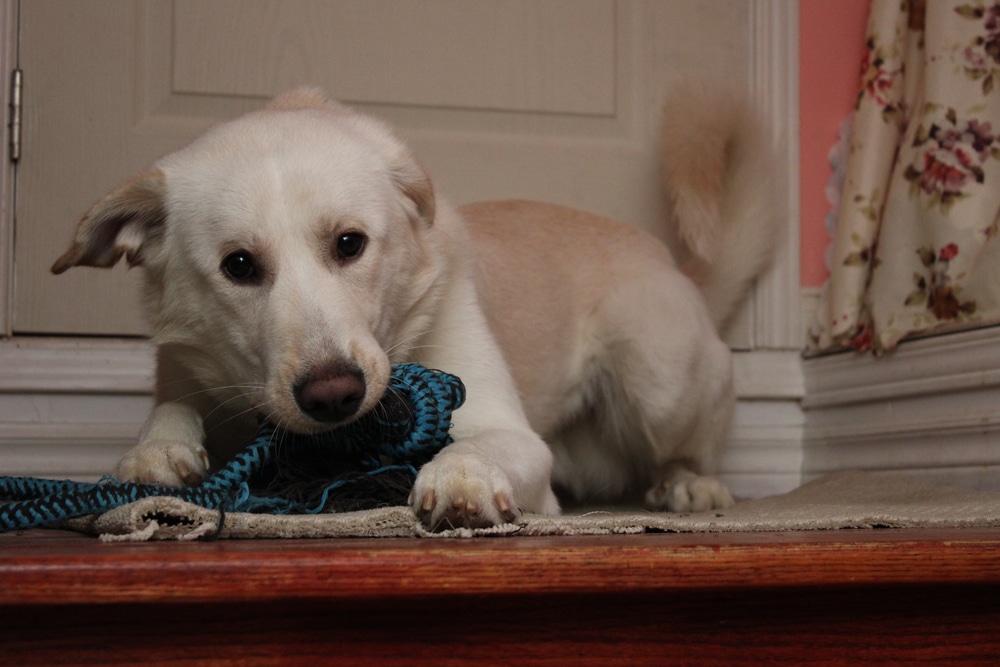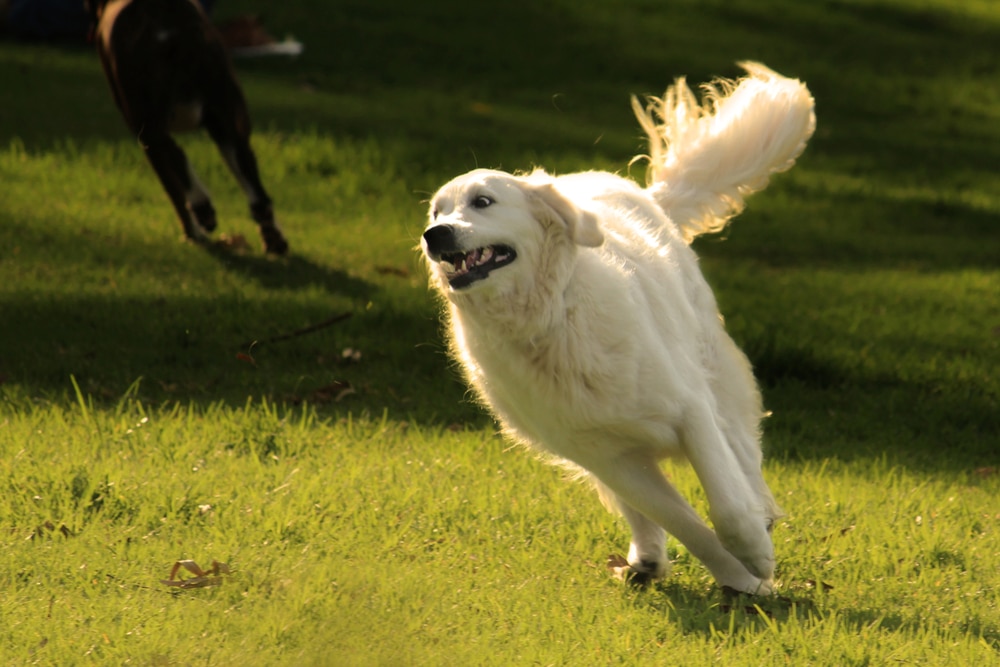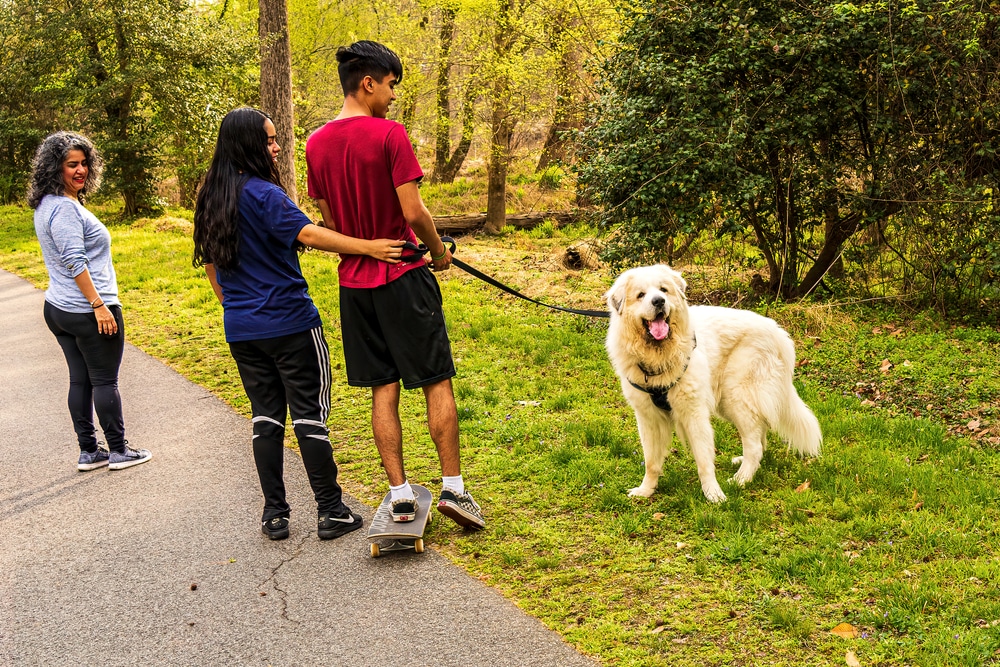The Great Pyrenees are a loyal, loving, and gentle breed of dog. However, they are also known for being particularly vocal.
If you’re considering adding this breed to your family, you may be wondering why they bark so much and how to get them to stop.
Here are 7 key reasons why the Great Pyrenees barks a lot, along with some practical tips to help manage this problem. Read on to find out!
What Reasons do the Great Pyrenees Bark A Lot?
Dogs bark for a variety of reasons. The Great Pyrenees is no different. This breed is known for being particularly vocal. There are a number of reasons why your Great Pyrenees may be barking more than usual.
First, it’s important to rule out any medical causes. If your dog is suddenly barking more than usual, it could be a sign of an underlying health condition. If you’re concerned about your dog’s health, make an appointment with your veterinarian.
Once you’ve ruled out any medical causes, it’s time to take a look at the environment. Is there something that’s causing your dog to bark? For example, if there’s a lot of noise outside, that could be why your dog is barking.
Breeding History and Barking
The Great Pyrenees is a large and ancient breed of dog that hails from the Pyrenean Mountains in southwestern Europe.
The breed is thought to be descended from the mastiff-type dogs of the Roman Empire and was used for centuries by shepherds in the Pyrenees to guard their flocks against wolves and other predators.
Today, the Great Pyrenees is still used as a working dog in some parts of the world but is more commonly seen as a loyal and loving companion animal.
The breed is known for its calm and gentle nature, as well as its deep bark, which can be quite loud and intimidating.
Guarding and Protecting

Great Pyrenees are a large, loyal dog breed that excels at guarding. They were originally bred to protect sheep from predators in the mountains of France and Spain, and today they make excellent guard dogs for homes and businesses.
The Great Pyrenees are gentle with family members and children, but they are also fiercely protective of their territory. They will bark at strangers and if necessary, will fight to defend their home or business.
“While Great Pyrenees make excellent guard dogs, they are also gentle, loving companions. If you are looking for a loyal friend who will always have your back, consider adding a Great Pyrenees to your family”.
Fear and Anxiety
Fear and anxiety are common problems in dogs of all breeds, but they can be especially difficult to manage in the Great Pyrenees.
This breed is so large and powerful that their fears can quickly turn into dangerous aggression. If you have a Great Pyrenees who is suffering from fear or anxiety, it’s important to seek professional help.
A qualified animal behaviorist can help you identify the cause of your dog’s fears and develop a treatment plan to help them overcome their anxieties.
Don’t miss – The Ultimate Great Pyrenees Guide – All Questions Answered!
Excitement
No, Great Pyrenees are not easily excited. They are a very calm and relaxed dog breed, which is one of the reasons why they make such great companion animals.
They are also very patient, which makes them good candidates for families with young children. But on the rare occasions when they are excited, it may be an indication that they are in pain or experiencing some other sort of discomfort.
If you see your Great Pyrenees exhibiting extreme excitement, it’s important to get them checked out by a veterinarian as soon as possible.
Seeking Attention
Yes, Great Pyrenees are attention seekers. They will try to get your attention by following you around or sitting in front of you. Sometimes they will even put their paw on you to get your attention.
If you are not giving them the attention they want, they may become destructive or bark excessively. To stop this behavior, establish boundaries and give them the attention they need.
Wanting to Play

Great Pyrenees may bark when they want to play. While they are a calm and gentle breed, they can become vocal when seeking some fun.
These gentle giants need plenty of exercise and stimulation to stay happy and healthy, so if you aren’t giving them what they need, then you should expect to hear about it!
Intimidating Others
The Great Pyrenees is a large, powerful dog breed that was originally bred to protect sheep from predators. These days, they are still used for protection, but they also make great family pets.
While their size can be intimidating to some people, the Great Pyrenees will often bark at strangers or those they see as a threat. This is their way of intimidating unwanted guests and playing their role as a protector!
Will a Great Pyrenees Bark at an Intruder?
The Great Pyrenees will bark or growl at an intruder if it feels threatened. However, they are not aggressive dogs and will usually only bark as a warning.
If the intruder does not heed the warning and continues to approach, the dog may become more assertive in its barking and may even lunge at the person.
Do Great Pyrenees Bark more when it’s Dark?
The Great Pyrenees are known for their booming bark and are considered one of the most vocal breeds of dogs. But do they bark more when it’s dark outside?
There is no scientific evidence to support the claim that Great Pyrenees bark more when it’s dark. However, there are some theories as to why this may be the case.
One theory is that they bark more when it’s dark because they can’t see as well. Another theory is that they bark more when it’s dark because they are guarding against potential predators.
7 Methods to Minimize Barking in your Great Pyrenees
Barking is a common behavior for dogs, but it can be a nuisance for dog owners and those living nearby.
Great Pyrenees are known for their large size and deep bark, which can make them especially loud. There are a few things you can do to help minimize your dog’s barking.
Ensure Regular Exercise

One method is to provide regular exercise for your dog. A tired dog is less likely to bark out of boredom or excitement. If possible, take your Great Pyrenees on a long walk or run every day.
If you can’t do this, try to at least give them some time to run around in the backyard or at the park.
Provide Mental Stimulation
There are a few things you can do to help minimize barking in your Great Pyrenees. One is to provide mental stimulation through activities such as puzzle toys, interactive games, and training.
A tired dog is a good dog, so make sure your Pyr has plenty of opportunities to burn off energy.
Ongoing Socialization
One way to reduce or eliminate excessive barking in Great Pyrenees is to provide them with ongoing socialization.
This means exposing them to as many different people, animals, and situations as possible regularly. We need to get them used to new things, so they don’t bark at everything they see or hear.
Some ways to socialize your Great Pyrenees include taking them for walks in different neighborhoods, going to dog parks, puppy classes, and obedience training classes.
“It’s important to start socialization early before the dog develops any bad habits. And it’s also important to keep up with it throughout the dog’s life”.
Keep your Great Pyr Indoors at Night
Great Pyrenees owners may be tempted to let their dogs spend more time outdoors as the weather gets colder and days shorter. However, keeping your dog indoors at night will minimize barking.
Here are a few reasons why:
Dogs are social animals and thrive on companionship. When left alone outside, they can become bored and restless, which can lead to excessive barking.
Dogs are also more vulnerable to predators when left alone outdoors. By keeping them indoors at night, you can help protect them from becoming prey.
Last but not least, indoor dogs are simply less likely to bark than outdoor dogs. So if you want to keep the peace in your neighborhood, it’s best to keep your Great Pyr indoors at night.
Redirect their Behavior

While barking is normal for dogs, it can become a problem when done excessively. You can do a few things to redirect your Great Pyrenees’ barking behavior and minimize the amount they bark.
One way to redirect your dog’s barking is to provide them with positive reinforcement when they stop barking. This could include treats, petting, or verbal praise. You should also make sure that there is no reason for your dog to be barking in the first place.
This means ensuring that they have plenty of exercise, are not left alone for long periods of time, and have a comfortable place to sleep.
If you have a puppy, it’s best to teach them not to bark excessively while they’re still young. We must prevent them from barking when we leave them alone or when they are bored.
“If your dog is barking due to separation anxiety, you should try to find other ways for them to cope and relax. This could include giving them a toy or treat, engaging in training with them, or providing them with another activity that can occupy their time”.
Positive Reinforcement
Dogs bark for many reasons, including boredom, fear, anxiety, and hunger. However, excessive barking can be a nuisance to both the dog and the owner. Positive reinforcement may be the answer if you have a dog that barks excessively.
Positive reinforcement is a type of training that rewards desired behavior. For example, if your dog only barks when someone comes to the door, you can give them a treat when they remain quiet.
This will teach them that being quiet results in a reward. There are many different types of positive reinforcement, so it’s important to find one that works best for your dog.
You may need to experiment with different techniques before you find one that is most effective. However, once you find a method that works, stick with it and be consistent.
You can try the following methods:
Reward your dog with food rewards like treats and dog biscuits. These are especially effective for some dogs. Play games with your dog that involve positive reinforcement.
For example, you can hide a treat around your house and allow your dog to find it. This will give him a sense of accomplishment no matter how small the treat you’re giving him is.
You can also train your dog to do small tricks, like fetching a ball or sitting on command. Reward your dog with food rewards like treats and dog biscuits.
These are especially effective for some dogs. Play games with your dog that involve positive reinforcement.
As outlined, while there are multiple reasons your Great Pyrenees may be barking, there are also plenty of methods to try which are likely to reduce the amount of noise they make. Experiment with these and find the method that works best for you and your dog!


